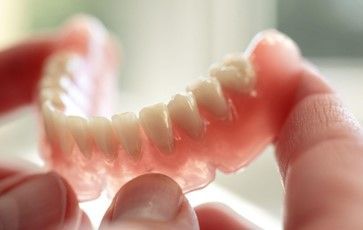


When it comes to restoring damaged or missing teeth, dental crowns and dental bridges are two commonly used solutions in the field of dentistry. Each serves a distinct purpose, yet many patients may not fully understand the differences between the two. In this blog post, we will explore what dental crowns and bridges are, how they function, and the situations in which each is typically recommended.
What Are Dental Crowns?
Dental crowns, also known as caps, are dental prosthetics that cover and protect damaged teeth. They are meticulously crafted to enhance the tooth's shape, size, and strength and improve its appearance. These crowns can be fashioned from a variety of materials such as metal, porcelain, or a blend of both, ensuring a harmonious blend of durability and aesthetic charm. Dental crowns are generally recommended for patients who have experienced significant tooth decay, suffered a fracture, or need to protect a tooth following a root canal treatment. Crowns can extend the life of a natural tooth while maintaining its functionality.
What Are Dental Bridges?
Dental bridges are structures that replace one or more missing teeth by bridging the gap between the existing natural teeth. This restorative solution involves anchoring artificial teeth, known as pontics, to the adjacent teeth, often referred to as abutment teeth. Like crowns, bridges can be constructed from a variety of materials. The primary purpose of a dental bridge is to restore the patient's ability to chew and speak properly while also enhancing their smile's appearance. Dental bridges are ideal for patients who have lost teeth due to injury, gum disease, or other dental health issues.
Key Differences Between Crowns and Bridges
The primary distinction between dental crowns and bridges lies in their application. Crowns are designed to cover individual damaged teeth, while bridges are meant to fill the space left by one or more missing teeth. Another important difference is in the dental preparation process; crowns require the reshaping of the tooth to fit beneath the crown, whereas bridges necessitate the modification of the adjacent teeth to support the bridge structure. Additionally, the longevity of crowns and bridges can vary based on several factors, including material chosen, oral hygiene practice, and individual habits.
When to Choose a Crown or a Bridge
Deciding between a dental crown and a bridge often depends on the individual patient's needs and the specific dental issues encountered. A thorough consultation with a qualified dentist is crucial to determine the best course of action tailored to the patient's situation. If a tooth has structural damage but is still healthy, a crown might be the best option, as it can provide support and restore function while preserving the natural tooth structure. Crowns are also ideal for protecting a tooth that has undergone root canal treatment or for anchoring a dental implant.
Conversely, if there is a gap due to missing teeth, a bridge may provide a more suitable solution. Bridges can effectively fill the void left by missing teeth, restore the aesthetics of the smile, and improve chewing function. They work by using adjacent teeth as anchors, allowing for a secure fit. It's important for patients to discuss their lifestyle, budget, and any concerns with their dentist to make an informed decision that ensures long-term oral health.
In summary, understanding the differences between dental crowns and dental bridges is essential for making informed decisions about your dental health. Both treatments play vital roles in restoring functionality and aesthetics to your smile, but they serve unique purposes depending on your specific dental condition. By consulting with a skilled dental professional, you can gain personalized advice tailored to your needs, allowing for a treatment plan that provides the best outcomes for your oral health. Remember, proactive dental care enhances your smile and contributes significantly to your overall well-being. If you have additional questions about dental crowns and dental bridges,
contact our office at Advanced Dental Care for more information.












